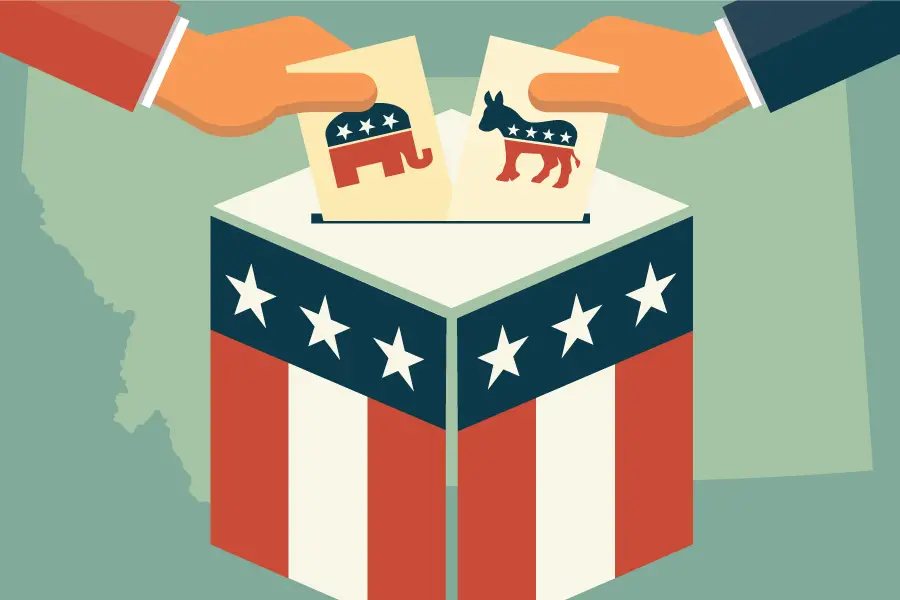Politics can be extremely complicated and hard to understand; sometimes it’s challenging to even know where to begin. Where should you find more information? What information is correct and what should you believe? These are questions even I ask myself. America’s political system is intimidating and that might be deterring you and your fellow college students from getting involved at all.
According to the United States Census Bureau, in the 2016 election, only 50.8 percent of people in the eighteen to twenty-four age group reported being registered to vote and shockingly, only 39.4 percent of those people reported voting. There are over nineteen million students enrolled in colleges and universities, public and private, across the country in this semester alone, reports National Student Clearinghouse Research Center in their comprehensive studies. Yet the turnout was so low that it necessitates the question of what made it so difficult for college students to vote.
Registering to vote isn’t a tricky process and in thirty-one states you can register online. If you aren’t in one of those thirty-one states, you can download and complete the National Mail Voter Registration Form and mail it to a specific location listed for you state; you can also register to vote in person at your local or state Election Office. You can also check with your local department of motor vehicles or military recruitment centers because in many occasions they allow people to register with them.
Going to an out-of-state school can pose a huge problem for students when it comes to elections for many reasons. The most common question is whether you are voting where you currently live or back home. For most students, they will be registered to vote back home because that is their permanent residence on record and some students tend not to infiltrate the local community where their college resides. If that’s the case, you may not have much information about the candidates in either area.
If you are planning to vote back home, all states allow absentee voting, which means you cast your vote and mail in before the election. Despite this, many states require you to have a valid excuse to vote absentee, one of which is attending an out-of-state college or university. Absentee voting has certain advantages over registering at your school. If you are an out-of-state student, you aren’t able to register in the state where your college is without reporting as resident and having a local address, and many students simply do not want to change their address on record. Regardless of the method, however, you should register to vote if you are able to because it’s your civic duty to be involved with the elections.
Aside from voting, another reason for students’ apathy for politics for students may be, ironically, their access to information. I know that getting information when you’re living in a different state can be daunting, especially when all the facts you are relying on are behind a screen.
From personal experiences, I enjoy being able to attend events where the politicians are speaking so that I can get a sense of who they are and what they are passionate about. I just find it easy to gauge the truthfulness of their platform at real-time, in-person events. Plus, I find those simplistic handouts to be the bare bones because there isn’t much information provided in the bullet points or among the attacks on the other candidates. But with today’s technology, it’s easy to gain access to information at any time from anywhere, so that shouldn’t be an excuse for you not to participate in the election.
Do you feel like your vote doesn’t count anyway? I know I do. The feeling of not making a difference is another reason why many students don’t vote. In the case of presidential elections, the electoral college decides who wins the race, but the people decide who the electoral college must vote for and the majority of a state’s population will eventually direct the way their support goes. That majority could have started with your vote. Local elections are a little different but that means your vote matters more as what local and state government implement have more of an impact on you. You shouldn’t be using the excuse that your one vote doesn’t make any changes—it does.
You’ve probably heard, “These things don’t affect me anyway.” That couldn’t be further from the truth. The general apathy for the political system deters students and even general people from casting their vote because they feel those things don’t impact them. Despite what some of you might think, politics and politicians affect each part of your life. Every one of those politicians was elected through a popular vote. If you don’t like what they are doing or disagree with policies, vote to change them. You aren’t making a difference by sitting back boycotting the system because “it doesn’t affect you” or you don’t like the people who are running for office.
It’s also difficult for students to understand specific hot topic issues that politicians talk about such as foreign policy, social security or funding for public grade schools. You are not worried about those things at this point in your life, so it’s hard to connect with any of the candidates. However, student loan debt, climate change or unemployment policies will impact your life in the long run. It might be difficult for you to be passionate about elections when candidates don’t seem to make those issue a forefront of their platform. I know how frustrating is it to feel undervalued in your community, but make your voice heard.
America is only one of nineteen countries that have a full democracy. That’s 4.5 percent of the world population, according to the Economist Intelligence Unit’s Democracy Index. Americans are lucky to be able to elect officials into office as there are fifty-one countries that still have an authoritarian regime, which doesn’t allow its people to participate in any political issues. It doesn’t seem feasible for us because we live in a country that wants the people to be involved and responsible.
If you aren’t voting, you are wasting your power to make changes in the ever-changing nation you live in. Being in college doesn’t make you incapable of making an impact or helping make the world a better place. In fact, as a college student, you are the future of this country and what you do matters more than you know.
You can start making a difference now by getting involved in the community and learn about your local, state and national government; you can register to vote so you will be prepared for the next election. In fact, in many states, there are municipal elections on November 7; check your state laws on deadlines and raise your voice.

















